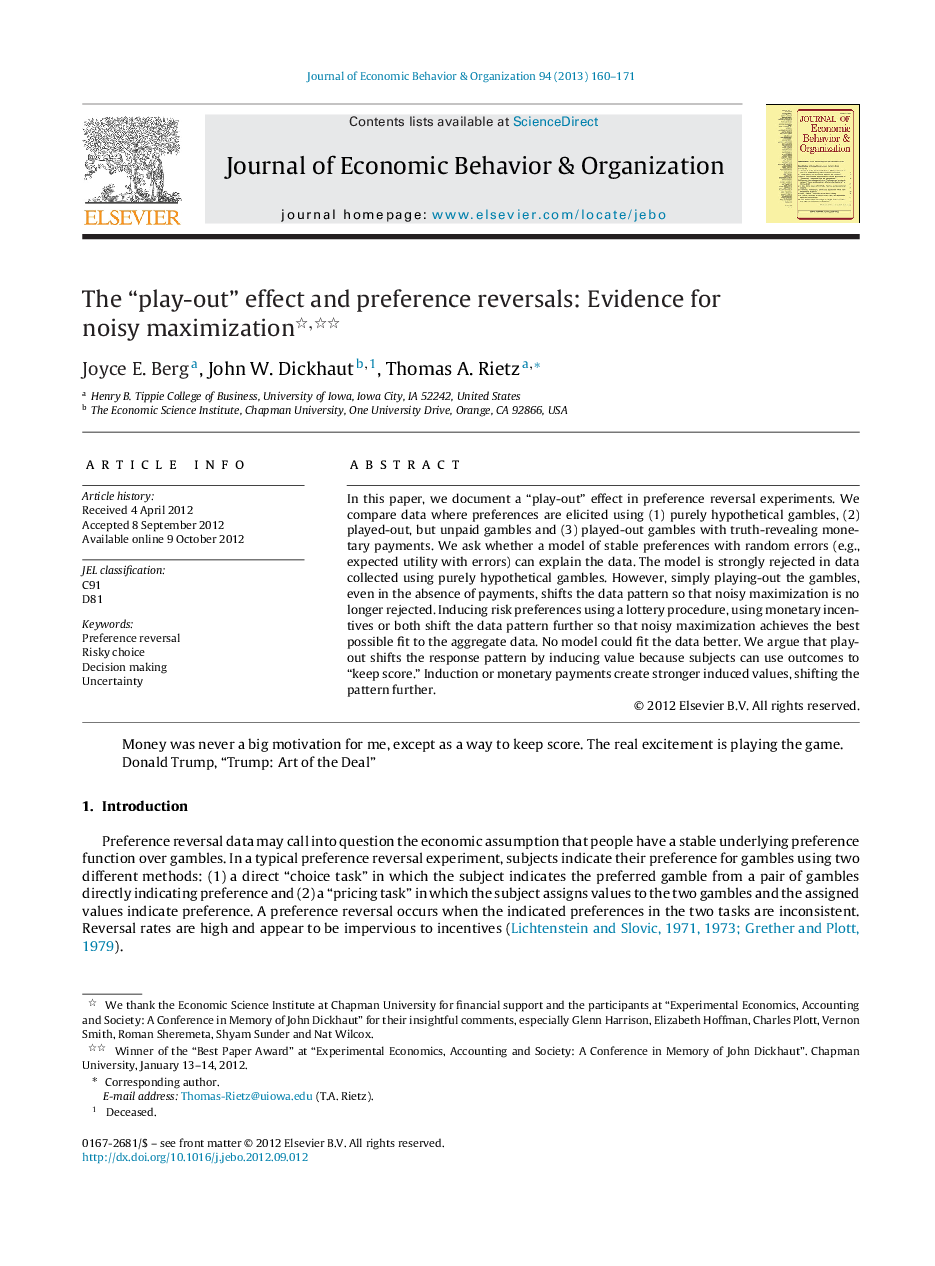| Article ID | Journal | Published Year | Pages | File Type |
|---|---|---|---|---|
| 7243673 | Journal of Economic Behavior & Organization | 2013 | 12 Pages |
Abstract
In this paper, we document a “play-out” effect in preference reversal experiments. We compare data where preferences are elicited using (1) purely hypothetical gambles, (2) played-out, but unpaid gambles and (3) played-out gambles with truth-revealing monetary payments. We ask whether a model of stable preferences with random errors (e.g., expected utility with errors) can explain the data. The model is strongly rejected in data collected using purely hypothetical gambles. However, simply playing-out the gambles, even in the absence of payments, shifts the data pattern so that noisy maximization is no longer rejected. Inducing risk preferences using a lottery procedure, using monetary incentives or both shift the data pattern further so that noisy maximization achieves the best possible fit to the aggregate data. No model could fit the data better. We argue that play-out shifts the response pattern by inducing value because subjects can use outcomes to “keep score.” Induction or monetary payments create stronger induced values, shifting the pattern further.
Related Topics
Social Sciences and Humanities
Economics, Econometrics and Finance
Economics and Econometrics
Authors
Joyce E. Berg, John W. Dickhaut, Thomas A. Rietz,
